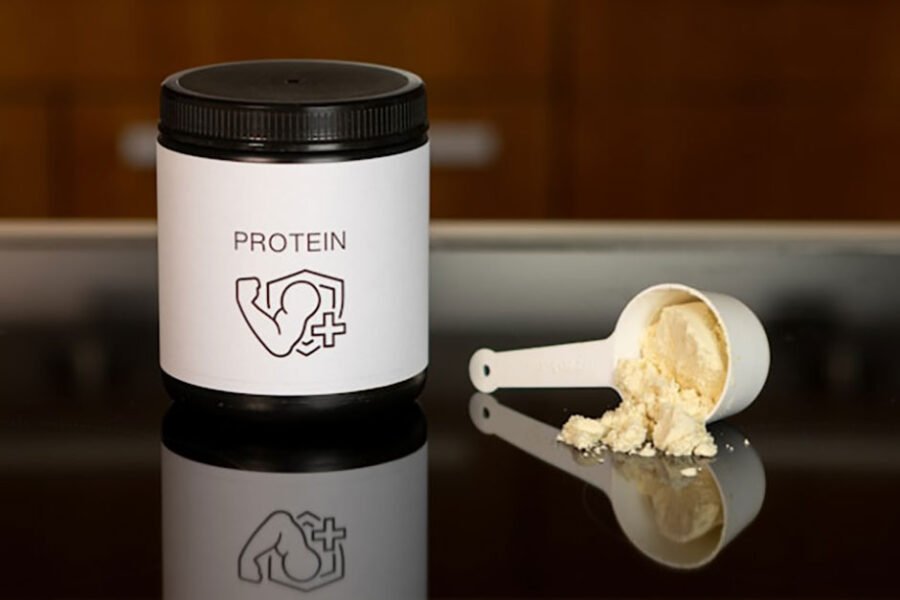Protein stands as a key macronutrient for our bodies, with a crucial impact on tissue building and repair immune support, and overall well-being. Athletes and gym-goers need protein to grow and recover muscles. Yet its perks go well beyond workouts. From cell repair to hormone creation, protein forms the base of a well-rounded diet and a healthy way of life.
Muscle Growth and Repair
People know protein best for its role in muscle growth. When you lift weights or do any tough physical task, your muscle fibers get tiny tears. Protein gives the amino acids needed to fix and rebuild these fibers making them tougher and more flexible as time goes on.
This process called muscle protein synthesis, is key for people who want to build muscle or get better at physical activities. Eating enough protein—after working out—helps your body recover faster and grow lean muscle. You can get protein from foods like lean meats, eggs, dairy, beans, and plant-based protein powders. These are all good ways to meet your daily protein needs.
Metabolic Health and Weight Management
Protein also has an impact on how your body burns energy and helps you manage your weight. Your body uses more calories to digest and process protein than it does for carbs and fats. This means you burn more energy when you eat protein. When you combine this with a balanced diet and regular exercise, it can help you lose fat.
Also, protein has an influence on feeling full, which helps people stay satisfied longer. This can lower total calorie intake and stop unhealthy snack habits. To lose weight or keep a healthy body shape, adding protein-rich foods to meals can be a smart and long-term plan.
Immune Function and Cellular Health
Besides its part in fitness and metabolism, protein is key to immune system work. Antibodies, enzymes, and other immune molecules are built from proteins, which aid the body to spot and fight off germs. Not enough protein can weaken immune responses making the body more likely to get sick and catch infections.
Protein has an influence on cell health by helping create enzymes and hormones. These molecules control many biological processes, from digestion to mood balance. When there’s not enough protein, the body finds it hard to keep these functions going, which can lead to tiredness, hormone imbalances, and other health problems.
Busting the Protein Absorption Myth
A widespread misunderstanding in the fitness world is the protein absorption myth—the idea that your body can take in a set amount of protein per meal often said to be 20 to 30 grams. While it’s true that muscle protein building might level off at a certain intake per meal, your body keeps breaking down and using protein for other jobs beyond just building muscle.
Studies indicate that the total amount of protein consumed has a greater impact than the quantity eaten in one sitting. Our bodies process protein throughout the day using it to repair tissues, produce enzymes, and support our immune system. Eating protein across different meals might help maintain muscle, but the idea of a strict limit on absorption is too simple and lacks backing from current research.
Protein Throughout Life
Protein plays a crucial role at every stage of life—not just for athletes or bodybuilders. Kids need protein to grow and develop, while adults depend on it to keep their muscle mass and stay healthy. Older people , gain from eating more protein to fight muscle loss that comes with age (sarcopenia) and to stay mobile and strong.
Pregnant and breastfeeding women need extra protein to help their babies grow and make milk. Doctors often tell patients to eat more protein when they’re getting better after surgery or illness. Protein matters for many health reasons making it key for everyone.
Conclusion
Protein does much more than help with fitness—it’s basic to life itself. It helps muscles grow, keeps metabolism healthy, boosts the immune system, and fixes cells. These things show how protein keeps us healthy overall. Learning the facts about protein and busting myths can help people choose their food better. If you want to be fit or just live healthier, eating enough protein is a smart move that makes a big difference.
